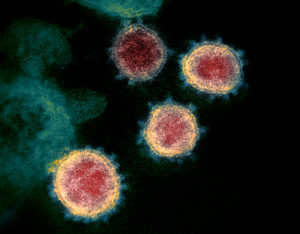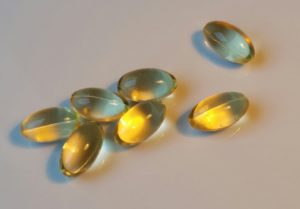
To take the antiviral Paxlovid or not is a big question among many older adults. The drug is meant to be taken soon after a person develops a Covid-19 symptoms - to avoid severe Covid symptoms and prevent hospitalization and death. Unfortunately, some people develop rebound Covid after stopping Paxlovid - that is, they again develop Covid-19.
What is going on? How frequently does this occur? A new study recently published found a rebound effect of 21%. That's 1 in 5 persons taking Paxlovid (nirmatrelvir-ritonavir). Also, the researchers found that during the second bout with Covid the person is shedding viral particles - thus contagious, even if they didn't have symptoms during the rebound.
In comparison, the Covid rebound rate was 1.8% in persons who did not receive Paxlovid.
And yes, the rebound Paxlovid group was vaccinated. The Paxlovid group had received an average 4 vaccines vs 3 in the no treatment group. Interestingly, Covid rebound was more common among those who started Paxlovid therapy within the first 2 days of Covid symptoms, versus those who started later.
So...it's still unclear to many older adults whether to take Paxlovid or not.
From Science Daily: One in five patients experience rebound COVID after taking Paxlovid, new study finds
A new study by investigators from Mass General Brigham found that one in five individuals taking Nirmatrelvir-ritonavir therapy, commonly known as Paxlovid, to treat severe symptoms of COVID-19, experienced a positive test result and shedding of live and potentially contagious virus following an initial recovery and negative test -- a phenomenon known as virologic rebound. ...continue reading "Rebound Rates of Covid Are Pretty High After Taking Paxlovid"

 The more physically active a person is before getting COVID-19, the lower the rates of hospitalization, deterioration events, and death from COVID-19 infection. In other words, physical activity is protective.
The more physically active a person is before getting COVID-19, the lower the rates of hospitalization, deterioration events, and death from COVID-19 infection. In other words, physical activity is protective. More studies are finding that supplementing with vitamin D is not living up to its original promise - that is, as a supplement that can prevent or treat all sorts of health conditions. Two recent large studies found that daily vitamin D supplementation in persons with or without a vitamin D deficiency didn't reduce the risk of getting COVID-19.
More studies are finding that supplementing with vitamin D is not living up to its original promise - that is, as a supplement that can prevent or treat all sorts of health conditions. Two recent large studies found that daily vitamin D supplementation in persons with or without a vitamin D deficiency didn't reduce the risk of getting COVID-19. Some good news for women who had a Covid-19 infection during pregnancy - one small study found reassuring results about the growth and development of the babies. The Northwestern University researchers found that at the 6 month checkup the babies overall had normal growth patterns and developmental milestones. This is great, great news!
Some good news for women who had a Covid-19 infection during pregnancy - one small study found reassuring results about the growth and development of the babies. The Northwestern University researchers found that at the 6 month checkup the babies overall had normal growth patterns and developmental milestones. This is great, great news!